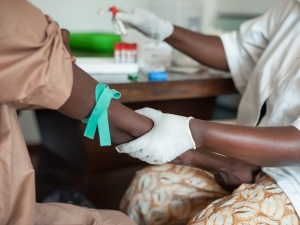First Large Trial of Its Kind Shows Proactive Treatment with Multi-Drug Regimen Doesn't Save More Lives

TB is the No. 1 killer of HIV+ patients in resource-limited countries, and those with advanced HIV are at especially high risk. However TB is difficult to diagnose in patients with low CD4 counts (an important laboratory indicator of how well the immune system is working). And patients often succumb to the disease before a diagnosis is made. Better tests are being created, but these may not work well in resource-limited settings, where providers often treat patients with advanced HIV empirically—without proof of TB disease. This may benefit patients but may also cause harm. Thus this study sought to compare TB screening and simple isoniazid treatment vs. an empiric, multi-drug regimen: Which would be would better improve outcomes for patients with very advanced HIV who initiate HIV treatment in settings where the burden of TB is high?
The authors pursued an unblinded, randomized treatment strategy trial that involved adult patients who were screened for TB but who did not test postive and whose CD4 counts were lower than 50 cells prior to HIV treatment initiation. These patients were randomized to a group treated with isoniazid alone (which prevents but does not treat TB) or to a group that received a four-drug, empiric TB treatment regimen.
This first big study of its kind—at 18 sites in 10 countries—found that treating proactively with multi-drug TB therapy did not reduce mortality in these patients, compared to simply treating them with standard isoniazid therapy. Furthermore, it appeared that empiric therapy actually led to a greater incidence of TB. Many healthcare providers mistrust TB tests’ accuracy and fear patients will develop drug resistance. However the study provides a clear course of action: Test HIV+ patients proactively and, if the patient is negative, give simple TB preventative treatment—as the World Health Organization has recommended.
Read the article in The Lancet.